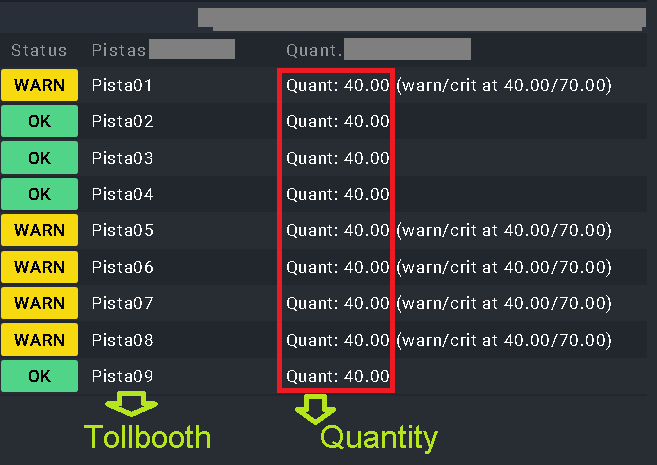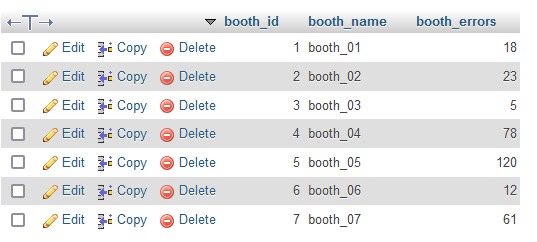Hi Glowsome, Thanks for the feedback.
I will describe the context better, I didn’t do this before to avoid making the post long.
Imagine a Toll Gate with 10 tollbooths. Each tollbooth has an identification, tollbooth-01, tollbooth-02, tollbooth-03…
Now, imagine that all passages that generate an error will be recorded in the database table.
So throughout the day, the number of errors will increase and at a certain point we will have something similar to this:
Tollbooth Quant. Errors
tollbooth-01----------23
tollbooth-02----------17
tollbooth-03----------98
tollbooth-04----------46
Every 3 minutes, I run a query that counts the number of errors per tollbooth. This way I can monitor the evolution of the number of errors that are being generated.
I need to get the query return and plot it on a dashboard, displaying the number of errors per tollbooth (just like the example described above)
If a tollbooth exceeds the “50” threshold, it will be classified as “Warning”, if it exceeds the “90” threshold, it will be classified as “Critical”.
I’m testing using Localcheck and it looks like this:

However, the way I configured it, it is necessary to run a script that executes the query on the Oracle table and generates a file for each tollbooth. This is necessary so that each tollbooth is identified as a service and helps in building the Dashboard.
I’m using Localchek from the Checkmk server itself (Centos 7), so I save the files in the “/usr/lib/check_mk_agent/local/” folder, then run Service Discovery to visualize the Services and plot them on the Dashboard.
The current configuration already meets the objective, the information can now be monitored, but is this the best method? Can’t we eliminate the need to generate a file for each tollbooth?
Can’t we bring the data to Checkmk via DBlink, eliminating the need to run scripts every “x” minutes? The idea here is to identify the best way, considering using the least amount of hardware resources (server) and network assets.
I tried to explain the context better, I hope I was successful. But if the scenario is still cloudy, please signal.
I really appreciate everyone’s opinion.
(Sorry for the writing errors)
Thanks again!



